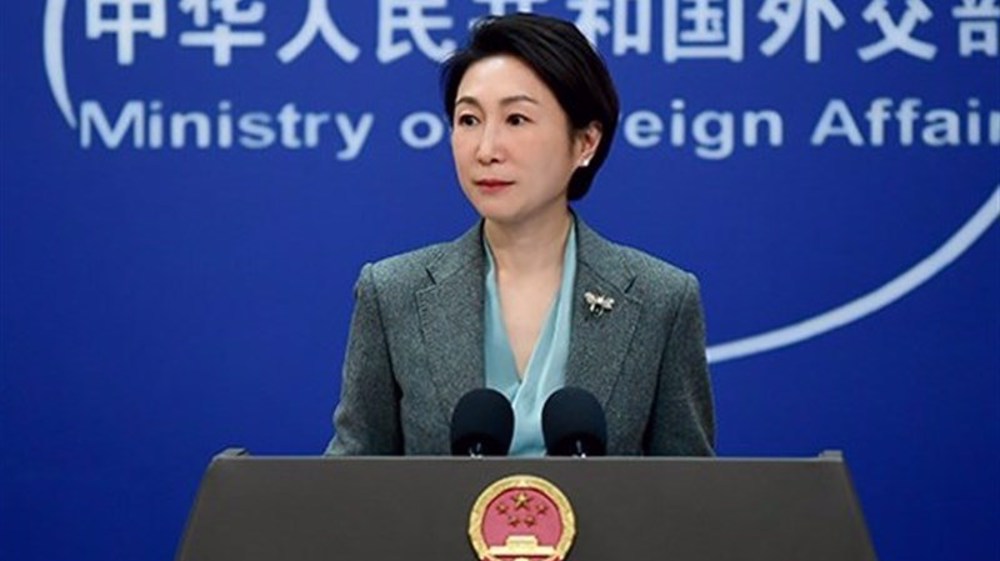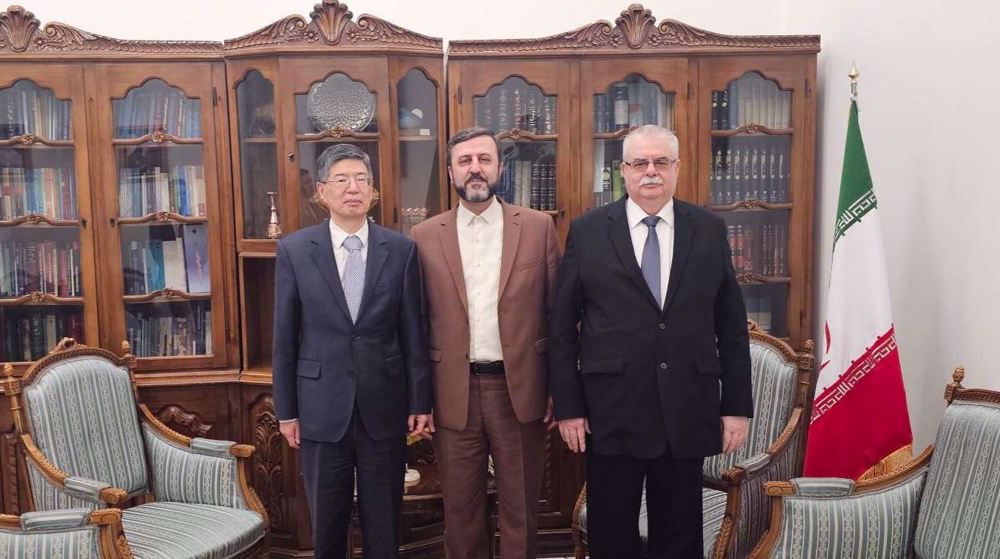China calls for rational action by India amid border standoff
China has urged India to abide by the international law and act rationally as tensions escalate between the two neighbors in a remote border area.
Hua Chunying, a spokeswoman for the Chinese Foreign Ministry, at a regular press briefing in Beijing on Tuesday hoped that such a big power as India would act responsibly and act in a way that it should, so as to make wise judgment and policies.
The spokeswoman said Dong Lang area is part of China's territory and it is not a disputed area. She said the logic India had been using to justify its intrusion was ridiculous.
The Chinese official reiterated that the prerequisite of ending the standoff was for India to withdraw all troops and equipment illegally staying there.
"The Dong Lang area is part of China's territory, and it is not a disputed area. India has illegally entered in this area in the name of its concerns over China's road building project. Its reasoning is ridiculous and its intention is vicious. The facts are clear. The prerequisite of ending the standoff is for India to withdraw all troops and equipment illegally staying there.”
“ I would like everyone to think, if we tolerate the ridiculous reasoning of the Indian side, is that saying that anyone who is not happy with what their neighbors are doing at home can break into their neighbors' houses and stay there?” she asked.
"Based on India’s logic, can China enter India outright and stop India from doing its work when we feel our security threatened by India's busy infrastructure building and construction projects in the border area? Any good of that except leaving the world in total chaos? Where are international norms? China has been exercising great restraint, and is willing to do anything we can. But we hope that such a big power as India will act responsibly, abide by international laws and act rationally in a way that it should, so as to make wise judgment and policies."
Elsewhere in her remarks, Hua said China had been exercising great restraint and was willing to do anything it can to resolve the tension.
In recent weeks, China has repeatedly called on India to withdraw its troops from a disputed territory in the Himalayan mountains near the borders with China and Bhutan and avoid an “escalation of the situation.”
Standoff erupted in June
China and India-backed Bhutan have been locked in a standoff over a tri-junction at their common border for decades.
Tensions between China and India intensified in June, when Chinese workers began building a road at the disputed Doklam Plateau, which New Delhi says is Bhutanese territory. Bhutan then responded by asking India, which backs Bhutan’s territorial claims, for assistance, prompting the deployment of the Indian troops across the border.
According to local press reports, Delhi further warned Beijing that the road was a “serious security concern” since it would give China access to the “Chicken’s Neck,” a thin strip of land that links India’s seven northeastern states to the rest of the country.

The deployment infuriated Beijing, which retaliated by shutting down a nearby mountain pass that Indian pilgrims used to reach Mount Kailash, a sacred Hindu and Buddhist site in Tibet.
Press reports also indicate that both India and China reinforced their troops in the area , with each side deploying nearly 3,000 additional soldiers.
Chinese state media say India has a total of 200,000 troops stationed in areas it disputes with Beijing, outnumbering Chinese forces by as much as 20 times.
The territorial dispute centers on disagreements over where the tri-junction of the three countries’ borders lies. While China insists that its territory extends south to an area called Gamochen, India says that Beijing’s control ends further north, at Batanga La.
Heated rhetoric in both Beijing and New Delhi has raised concern over a renewal of hostilities that resulted in a short but deadly frontier war between the two sides in 1962, in which China emerged victorious.
The nuclear-armed powers share a 3,500-kilometer border, much of it is disputed between the two neighbors.
US regional meddling worrying China
The incursion and a confrontation between troops emerged at a time as Indian Prime Minister Narendra Modi arrived in Washington to meet with US President Donald Trump.
India has deepened its military ties with the United States in recent years, worrying China, which is also unhappy with India's refusal to participate in Beijing's multi-billion-dollar Belt and Road infrastructure initiative. India is concerned the project could cement China's dominance over Asia.
Saudi Arabia lobbied for UAE sanctions: Trump
IRGC launches missile, drone strikes against Israel in response to US-Israeli aggression
IRGC pounds US bases across West Asia following US, Israeli aggression
VIDEO | Plan for US-pegged digital currency in Gaza raises sovereignty fears
OIC welcomes Oman-mediated Geneva talks between Iran, US; warns against use of force
VIDEO | Campaign to boycott Israeli ‘apartheid dates’ in UK intensifies during Ramadan
VIDEO | Pakistan launches Operation Ghazab lil-Haq after Afghan border firing
VIDEO | Pakistan condemns Israel’s expansionist agenda in Palestine at OIC










 This makes it easy to access the Press TV website
This makes it easy to access the Press TV website